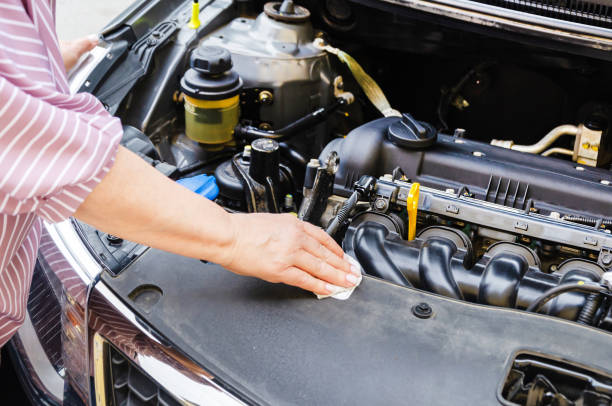
Maintaining your car’s appearance shouldn’t end with waxing the body and shining the tires. One of the most overlooked yet crucial areas to clean is the engine bay. Proper engine bay cleaning enhances aesthetics, boosts resale value, and may even extend engine life.
What Is Engine Bay Cleaning?
Engine bay cleaning in Atlanta GA refers to the process of removing dust, grease, oil, and grime from the engine compartment. This includes all visible components under the hood — the engine block, hoses, battery, plastic covers, and metal surfaces. Done right, it restores the factory-fresh look and reduces buildup that could hinder performance.
Why Engine Bay Cleaning Matters
An engine bay clogged with dirt or oil can hide serious issues like fluid leaks or cracked hoses. Moreover, a clean engine runs cooler and more efficiently. Regular cleaning also makes maintenance easier and may help identify mechanical problems early on.
How Often Should You Clean Your Engine Bay?
There’s no fixed rule, but a good starting point is every 6 to 12 months, depending on your driving conditions. If you frequently drive on dirt roads or live in a dusty or coastal area, you might want to clean it more often.
Tools and Supplies You’ll Need
Before you begin, gather the right tools:
- A degreaser (non-corrosive)
- Soft brushes and microfiber towels
- Water hose or pressure washer (low setting)
- Plastic bags or aluminum foil
- Rubber gloves
- Compressed air or leaf blower (optional)
Step-by-Step Guide to Engine Bay Cleaning
Let the Engine Cool:
Never clean a hot engine. Let it cool completely to avoid burns and prevent damage from cold water contacting hot surfaces.
Cover Sensitive Components:
Use plastic bags or foil to protect the battery, alternator, air intake, and exposed wiring from water exposure.
Dry Dust First:
Use compressed air or a brush to blow away loose dust, leaves, and debris.
Apply Degreaser:
Spray an engine-safe degreaser over dirty areas. Let it sit for 5–10 minutes to loosen grime. Avoid oversaturating.
Agitate with a Brush:
Use a soft detailing brush to work the degreaser into tight spots. Don’t use metal bristles—they can scratch surfaces.
Rinse Lightly:
Use a gentle spray to rinse off the degreaser. Avoid using high-pressure water directly on sensitive components.
Dry the Area:
Wipe down surfaces with microfiber towels. Use compressed air or a leaf blower to remove moisture from hard-to-reach areas.
Remove Covers & Final Touches:
Take off all protective coverings and check for remaining residue. Optionally, apply a plastic or rubber conditioner for a polished look.
Common Mistakes to Avoid
- Using a high-pressure washer near electronics
- Skipping the protection step for sensitive parts
- Overusing degreasers, which can strip protective coatings
- Not drying thoroughly, leading to corrosion or short circuits
Professional vs. DIY Engine Bay Cleaning
While DIY cleaning can be effective, professional detailing services often use steam cleaners and specialty tools to provide a deeper, safer clean. If you’re unsure or your engine is excessively dirty, a professional may be worth the cost.
Benefits Beyond Appearance
Engine bay cleaning isn’t just about looks. A clean engine area:
- Prevents corrosion
- Improves engine cooling
- Boosts vehicle value
- Helps identify mechanical issues early
- Reduces fire risks due to oil or fluid buildup
FAQs
Q1. Is engine bay cleaning safe for modern vehicles?
Yes, if done properly. Always cover electronics and use water sparingly. Most modern vehicles have sealed components that handle light moisture well.
Q2. Can engine bay cleaning cause electrical issues?
If done incorrectly—yes. That’s why it’s important to protect key areas like the alternator, battery, and fuse box before spraying water.
Q3. How long does engine bay cleaning take?
A thorough DIY cleaning can take 45 minutes to an hour. Professional cleanings may be quicker and more comprehensive.
Q4. Is it legal to clean my engine bay at home?
In some areas, washing greasy parts can be restricted due to environmental concerns. Check local regulations before cleaning in your driveway.
Q5. What’s the best time of year to clean the engine bay?
Spring and fall are ideal. Avoid doing it in winter (to prevent freezing) or during peak summer heat.
Conclusion
Professional engine bay cleaning doesn’t require advanced skills or expensive tools—just a careful approach and attention to detail. Whether you’re prepping for a car show, selling your vehicle, or just keeping things in top shape, it’s a small effort that yields big results.





